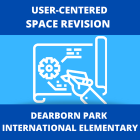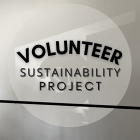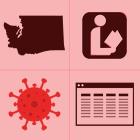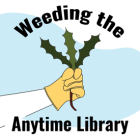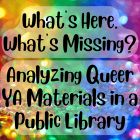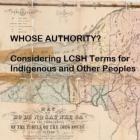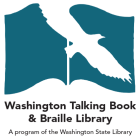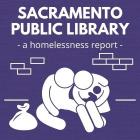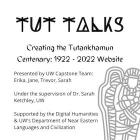
Tut Talks
The Tutankhamun Centenary: 1922 – 2022 website hosts a collection of Howard Carter’s personal documents and articles from the Times of London describing the discovery of Tutankhamun’s tomb. The wealth of information related here had been out of public view for the past 100 years, so this project sought to make these documents accessible to both academics and the curious public. We learned how to use digital tools and platforms to create an online archive; we learned how to document,preserve, and present historical materials; we created metadata and a keyword list; and we integrated our archive into an interactive timeline.

